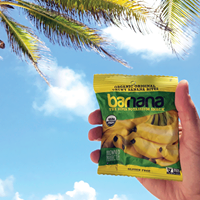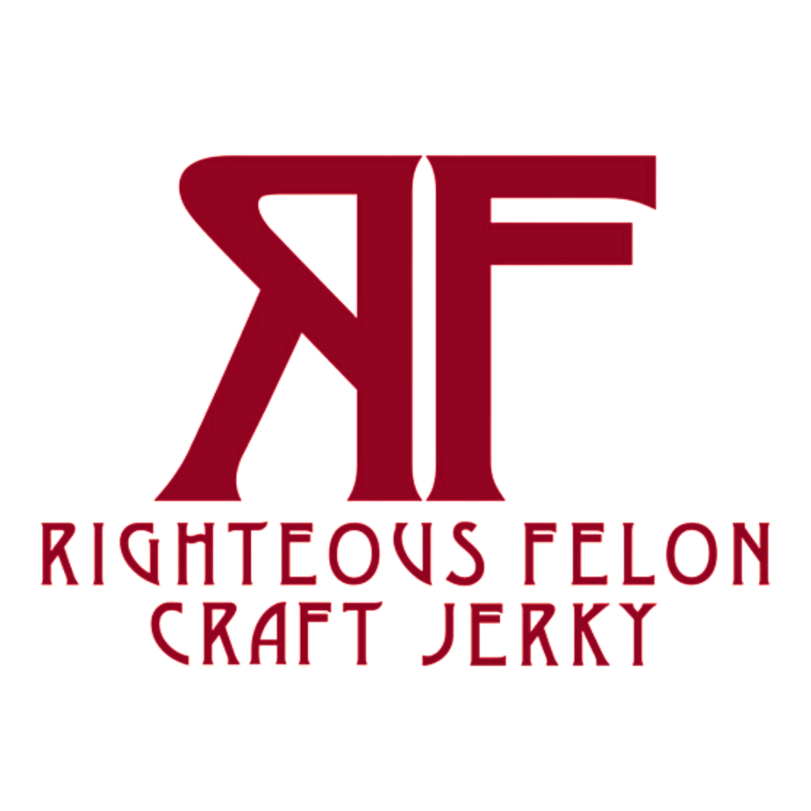Barnana Expands Savory Snack Line, Rebrands
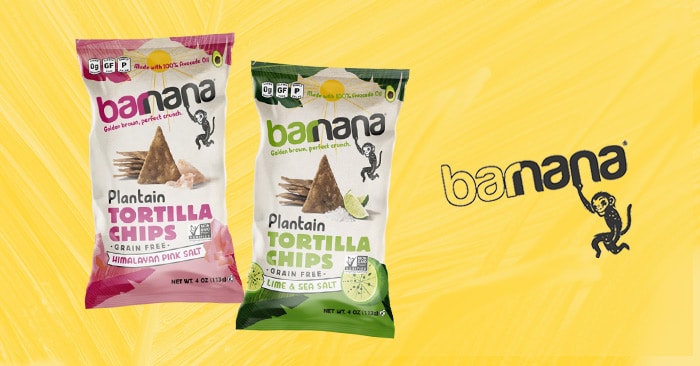
Snack brand Barnana is expanding its savory snack line and rebranding as it seeks to build its presence in the salty snack set in conventional retailers.
The brand’s newest product, Plantain Tortilla Chips, is launching in Himalayan Pink Salt and Lime & Sea Salt flavors and will retail for $3.99 per 4-oz bag. The chips will debut online and in select Southern California-based retailers, with plans to enter 5,600 doors this year.
Despite a wide range of alternative tortillas chips already on the market, Barnana founder Caue Suplicy said the company felt there was a lack of grain-free chips that could hold up to dips without breaking. The new Tortilla Chips provide the right “structure and taste” to serve as an easy swap for shoppers.
Founded in 2012, Barnana currently sells its Plantain Chips, Banana Bites and Banana Brittle in 7,000 stores, including Whole Foods, CVS and Costco. The Plantain Chips, launched in 2018, were already gaining traction in conventional retail, Suplicy said, while consumers were asking for more savory options. They also saw more uptick during the pandemic, he noted. Though the line had a dedicated following, the brand felt there was room to create another more conventional offering.
“They solved a lot of needs,” Suplicy said. “That line exceeded all our projections and plans; [and] that showed us Barnana can be a very mainstream brand.”
The brand is already making progress on its goal of expanding in mass, club and conventional grocery channels this year, and natural retailers represent about 30% of the brand’s distribution.
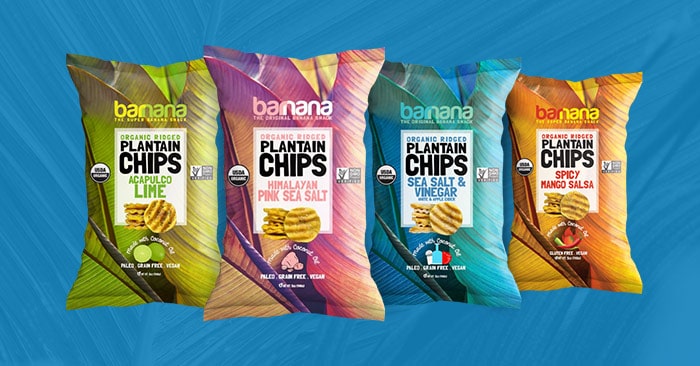
As it moves further into these channels, shelf placement is a challenge, with consumers reporting they struggle to find where Barnana products are stocked in conventional retail; some retailers place their items in the mainline snack aisle while others have a “healthier snack set.” Some retailers have also added secondary placements in the produce section.
Moving forward, the brand prefers to be sold in the salty snack set, alongside conventional tortilla chips. But before doing so, Suplicy said, the team felt that a branding refresh was needed to compete with larger players in the category.
Though a 2018 rebrand helped the brand stand out on shelves, it still needed to “become more recognizable,” Suplicy said. The new branding includes a larger logo with a swinging monkey mascot, “Nana,” based on spider monkeys in Central and South America, the source of Barnana’s plantains and bananas.
The tortilla chips are the first product to feature Barnana’s new packaging, while the rest of the products will be updated by the end of the year. The revamped visual design ties together the brand’s mission of supporting regenerative agriculture and upcycling, Suplicy said, with the design created by renowned Brazilian graffiti artist Speto in collaboration with design firm Bex Brands.
To further fuel its evolution, the brand recently expanded its team, including hiring Al Multari as its new CEO in September and has brought “experience and structure I didn’t have,” Suplicy said. Two hires earlier this year — Jeffrey Tyo as SVP of sales, and Price Wilson as VP of operations — also helped the company power through the pandemic, with Tyo managing retailer meeting postponements and Wilson helping navigate distribution disruptions. Suplicy credited Tyo’s industry relationships for helping reschedule key retailer meetings about placing the tortilla chips.
“The greatest thing about the stage we’re in is that we are getting bigger, and we have the experience on the team, but are still small and can be nimble to change and operate things in a different way,” he said. “There were delays and things we could not foresee. It was great to have their experience and be able to change things as we went.”
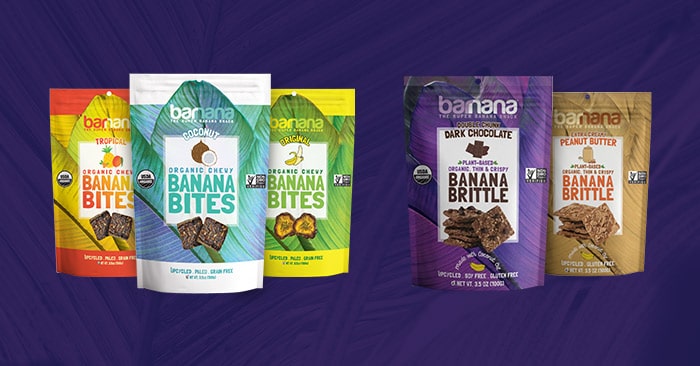
As U.S. cities begin to loosen restrictions, the West Los Angeles-based company plans to eventually move into a new headquarters in West Hollywood. While focused on its existing snacks for now, there may be opportunity ahead to move into other categories; Suplicy said he has imagined building a broader portfolio from the start, but the brand needed to establish itself first.
“A lot of small companies fail trying to do too much too soon,” he said. “This always was the plan, just not the right time. We want to be mindful; we’re a lot bigger than before, but there’s still so much room to grow.”
